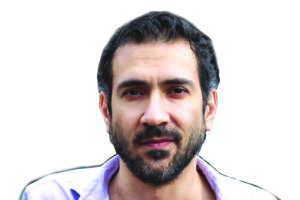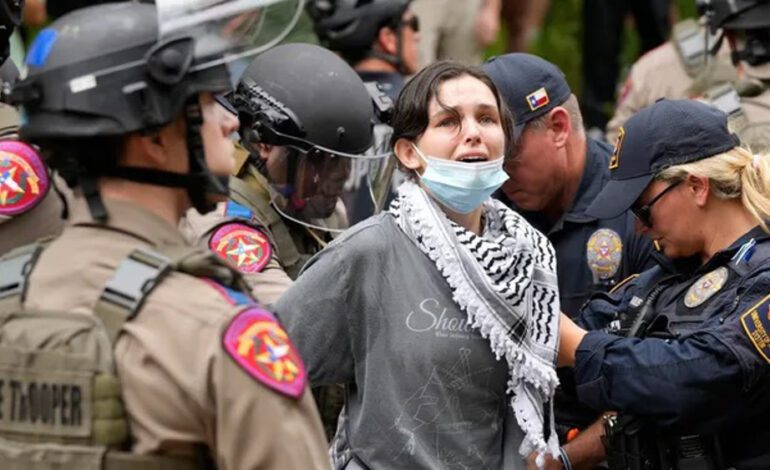By Morhaf Al Achkar, MD, PhD*
In recent weeks, university campuses across the United States have transformed into epicenters of political activism. Sparked by the ongoing conflict in Gaza, students have established pro-Palestine encampments, seeking to express solidarity and raise awareness. Rather than engaging with these peaceful protests through dialogue, many university administrations have opted for police intervention, leading to the dispersion and arrest of students. This approach not only threatens the sanctity of academic freedom, but also undermines the universities’ role as bastions of learning and democratic discourse.
Universities must not forget their primary role as sanctuaries of free thought and expression. These institutions should be the first to defend the rights of students to organize and express their views, particularly on such complex international issues. Instead of responding with force, universities should facilitate these expressions of activism as part of a broader educational mission to foster a vibrant democratic society.
The current handling of student protests by involving police parallels an inappropriate and damaging approach akin to a retail store calling law enforcement on its customers for voicing dissatisfaction. Such a response is not only disproportionate but also detrimental to the university’s public image and trust within its community. Furthermore, it conflicts fundamentally with the role of educational institutions to nurture open dialogue and learning.
The aggressive response to student protests can have long-lasting negative impacts on community relationships and the institution’s standing in the academic community. Historical instances, such as the events at Kent State University, serve as stark reminders of how forceful interventions can lead to tragic outcomes and long-term reputational damage.
Financially and ethically, universities owe a great deal to their students, who are not only consumers but also central contributors through roles like teaching assistants and researchers. This relationship extends beyond financial transactions to include a moral obligation to support the intellectual and personal growth of students. When universities meet student activism with opposition rather than support, they betray their mission and damage the trust between students and institutions, potentially affecting their reputation and capability to attract future scholars and funding.
Moreover, the aggressive response to student protests can have long-lasting negative impacts on community relationships and the institution’s standing in the academic community. Historical instances, such as the events at Kent State University, serve as stark reminders of how forceful interventions can lead to tragic outcomes and long-term reputational damage.

Morhaf Al Achkar, MD, PhD
Faculty members have a crucial role to play in this context. They should stand alongside students, integrating the issues that drive activism into academic discourse and using these real-world examples to enrich curriculum and research. This not only validates the students’ efforts, but also enhances their educational experience by providing a practical context for theoretical knowledge.
To ensure safety and maintain order during protests without undermining the spirit of activism, universities can adopt non-violent measures such as employing unarmed security personnel trained in de-escalation techniques and involving faculty in overseeing protests. Such methods demonstrate a commitment to upholding the right to peaceful protest while ensuring that educational operations and the safety of all participants are not compromised.
The dissonance between donor ideologies and the evolving political beliefs of students, particularly regarding international issues like Palestine, presents additional challenges. Universities must manage this delicate balance transparently, ensuring that financial influences do not compromise academic integrity or suppress free expression.
Universities are at a pivotal moment. They must engage openly with student demands, maintaining honest communication to build trust and mitigate conflicts. By doing so, they reaffirm their commitment to fostering future intellectual leaders who value and practice academic freedom and social justice.
In conclusion, it is imperative that university leaders rethink their approach to handling student protests. They must apologize for past missteps, rectify harms and wholeheartedly commit to supporting student activism constructively. This is not merely a call for change, but a necessary step to ensure that universities continue to serve as true pillars of learning and democracy.
*The views expressed are my own and do not reflect the official policy or position of Wayne State University or Karmanos Cancer Institute.
— Morhaf Al Achkar is an associate professor at Wayne State University and associate director for education at the Karmanos Cancer Institute.






Leave a Reply